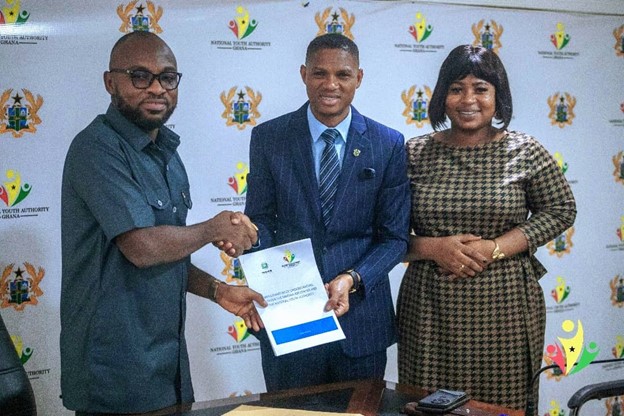In an effort to scale up impact and create more sustainable opportunities for young people, the Madina Job Center (MJC) is in discussions with the National Youth Authority (NYA) to establish a strategic partnership.
This collaboration is focused on enhancing skills training, entrepreneurship support, and job creation, aligning with national development priorities and global efforts to address youth unemployment.
Youth unemployment: a global and national crisis
According to the International Labour Organization (ILO), global youth unemployment stands at 14.9percent, nearly three times higher than adult unemployment rates.
In Africa, over 60percent of young people are either unemployed or underemployed, facing limited access to decent work opportunities.
In Ghana, the situation is equally concerning—youth unemployment hovers around almost 15percent, with underemployment affecting nearly 50percent of the youth population.
The skills gap, lack of job opportunities, and limited access to startup capital for young entrepreneurs continue to pose serious barriers to economic empowerment.
This collaboration between MJC and NYA directly contributes to the achievement of the United Nations Sustainable Development Goals (SDGs), particularly:
- SDG 1 (No Poverty) – By creating employment opportunities, we reduce poverty levels and improve livelihoods.
- SDG 4 (Quality Education) – Expanding access to vocational and digital skills training ensures young people acquire practical, job-ready competencies.
- SDG 8 (Decent Work and Economic Growth) – Providing employable skills, supporting entrepreneurship, and linking youth to job opportunities will boost economic growth and productivity.

A bold step towards sustainable youth empowerment
One of the major focuses of this partnership is expanding skills development and training programmes to ensure that more young people have access to vocational and digital skills that are in high demand in today’s job market.
By equipping youth with industry-relevant competencies, we can bridge the skills gap and improve their chances of securing stable employment.
These programmes will be structured to address the evolving needs of the job market, ensuring that young people are not just trained but are prepared for the realities of the workforce.
Beyond training, entrepreneurship support will be a key pillar of this collaboration. Many young people have business ideas but lack the necessary funding, mentorship, and business development training to bring their ideas to life.
Through this partnership, young entrepreneurs will receive tailored support to launch, sustain, and scale their businesses, contributing to job creation and economic growth in the community. With the right resources, these young business owners will not only create jobs for themselves but will also become employers, fostering a more robust local economy.
The partnership will also prioritize job placement and career development by creating clear pathways for trained youth to transition into employment. Many young people struggle to find jobs, not because they lack skills, but because they lack access to networks and structured employment pathways.
By strengthening job placement initiatives, this collaboration will connect young people with opportunities in both the public and private sectors, ensuring that their skills translate into meaningful work.
Policy and advocacy will play a crucial role in ensuring long-term impact. MJC and NYA will work together to influence policies that support youth employment and skills development, ensuring that government and private sector efforts are aligned towards creating a sustainable and inclusive job market.
By engaging stakeholders at various levels, this collaboration will push for systemic changes that benefit the larger youth population, making youth employment a national priority.
With Ghana’s youth forming nearly 38percent of the total population, ensuring they have access to skills, employment, and entrepreneurship opportunities is not just a development goal—it is a necessity.
This initiative is a direct investment in the country’s future, setting a new standard for youth empowerment and economic resilience.
As discussions progress, the Madina Job Center remains committed to its mission— creating 1,000+ jobs and empowering young people in 2025. This is just the beginning of something bigger.










